
Yunfei Hou (computer science and engineering), Zachary Powell (criminal justice) and Brian Levin (criminal justice, emeritus) were quoted in recent news coverage in their respective areas of expertise.

Six students from Cal State San Bernardino’s Experiential Computing and Engaged Learning Scholarships (ExCELS) program attended the 2025 S-STEM Scholars Meeting in San Diego, joining more than 1,200 scholars nationwide for workshops, research presentations, and networking opportunities in STEM.
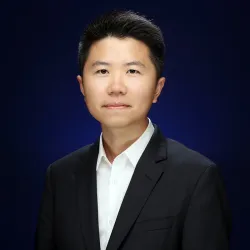
“With this NSF grant, we will launch new academic programs in AI, establish a community-focused AI Help Desk, and expand research opportunities for all students in the Inland Empire,” said Yunfei Hou, principal investigator of the PROPEL AI program, director of CSUSB’s William and Barbara Leonard Transportation Center, and professor of computer science
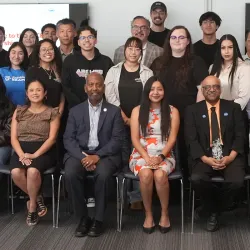
Cal State San Bernardino hosted the 2025 ExCELS Scholarship Celebration, recognizing student achievements and the growth of the Experiential Computing and Engaged Learning Scholarships (ExCELS) Program, a National Science Foundation-funded initiative supporting computer science majors.
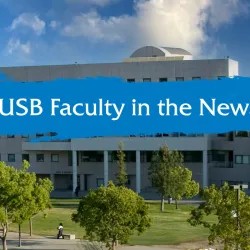
Leonard Transportation Center faculty Kimberly Collins, Yunfei Hou and Raffi Der Wartanian, with graduate students Sai Kalyan Ayyagari and Bhavik Pankaj Khatri, published a study for the journal Data in Brief; Mike Stull (entrepreneurship) discussed the opening of the Palm Desert Entrepreneur Resource Center; and Michael Karp (history) coordinated the 20th annual Academic WorldQuest competition.
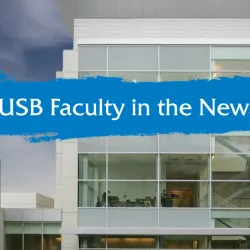
Dorothy Chen-Maynard (health science and human ecology) was interviewed about the temblor that shook the San Bernardino area on Feb, 10. And the following faculty recently published studies: Miranda M. McIntyre (psychology), Yunfei Hou (computer science and engineering), Rajrani Kalra (geography and environmental studies), Nicholas Brunet (psychology) and Christina Hassija (psychology).
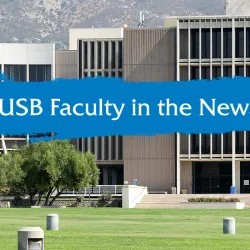
Highlighted in various media is the work of Daisy Ocampo Diaz (history), Sishi Wu (criminal justice), Lisa Looney (child development), Yunfei Hou (computer science and engineering), Miranda McIntyre (psychology), Jesus Herrera (information and decision science), Hani Aldirawi (mathematics), Montgomery Van Wart (public administration), Eric Vogelsang (sociology), Jacob D. Jones (psychology) and Fabian A. Borges (political science).

CSUSB students Jerry Cervantes-Fernandez and Alexis Luevanos, Experiential Computing and Engaged Learning (ExCELS) Scholarship Program scholars, were awarded the Hispanic Association of Colleges and Universities (HACU) Conference Scholarship Award to attend the 38th annual HACU conference in Denver.
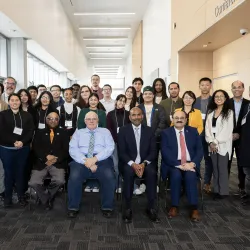
The Experiential Computing and Engaged Learning Scholarships (ExCELS) Program recognized its first scholarship recipients at a reception on Feb. 26. ExCELS aims to create inclusive and sustainable computational sciences workforce pathways to careers in the Inland Empire.